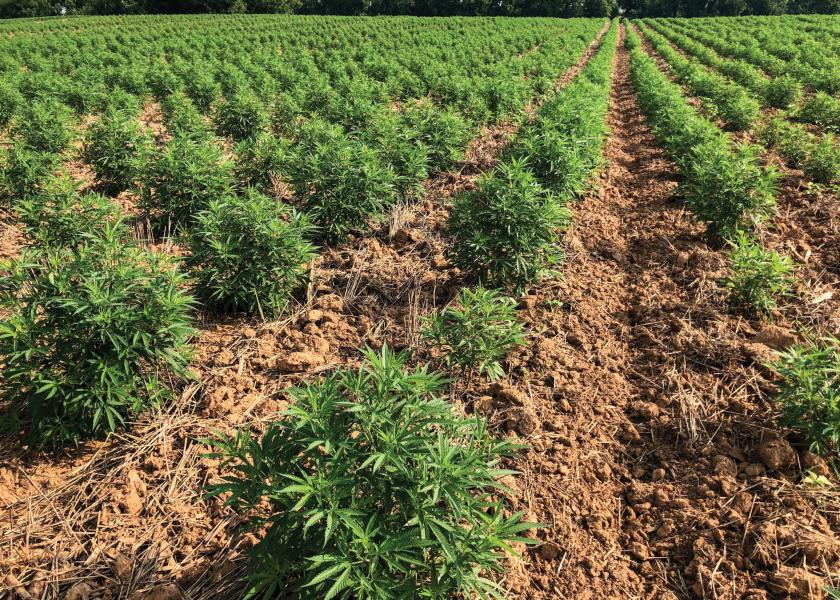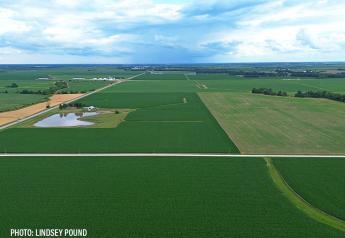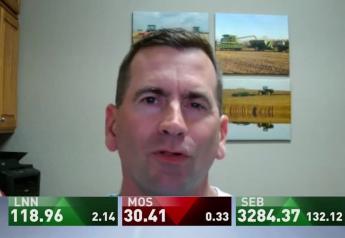Hemp Investing 101: The Basics

Since 2014, the nascent hemp industry quickly developed into a profitable and attractive industry for investors. Now, with the boon of the 2018 Farm Bill, hemp businesses and investors alike recognize the industry’s enormous potential, with endless uses for the hemp plant and numerous opportunities for investment.
Notably, hemp is now treated by both federal and many state agencies as a conventional agricultural commodity, akin to corn and wheat. Yet, while many conventional business, investment and due diligence considerations are equally applicable to hemp, the hemp industry often possesses many nuances, uncertainties and additional considerations that many new industries face.
Although the hemp industry is young, businesses and investors each want to prosper from the industry’s broad spectrum of uses and the plant’s popularity. Hemp can be made or infused into a variety of products, including hemp textiles, building materials, food and therapeutic products.
In considering potential investors, hemp businesses should consider a number of important characteristics
• Objectively evaluating the investor’s background, experience and pedigree and how to leverage the same for the benefit of the business;
• Objectively evaluating the business’ own projections, its core strengths and weaknesses, and how investors might view an investment in the company and the likelihood of a successful “exit;” and
• Rooting out, and not falling for, the flashy exaggerations fraught with some investment opportunities.
Importantly, hemp businesses should seek to partner with investors who not only can provide the desired capital, but also could make other tangible or intangible contributions to the overall development of the business such as providing innovative ideas for growth, leveraging professional experience and extending the company’s overall network.
If you’re interested in learning more about growing hemp on your farm, click here to see future Hemp College dates.
Execute an NDA
Before seriously engaging in discussions of investment with potential investors, execute a non-disclosure agreement (“NDA”) between the company and the potential investor. An NDA will protect each party’s privacy—which both the company and the potential investor should appreciate. This enables both sides to more freely exchange information to more quickly and better evaluate whether the investor is a right fit for the company, and vice versa.
Recognize this is a relationship, not just raising capital
Finding the right investor is more than just searching for dollars and cents or the deepest pocketbooks. Instead, the search should focus on fostering a fruitful, long-term business relationship. The larger the investment becomes, the greater the demands of the investor – large investments may require the company to relinquish certain benefits—voting control, profit distributions and operational control, for example.
A hemp business should evaluate its specific needs, the use of investment proceeds and its willingness to part with some of the controls noted above. Businesses should be cognizant of this forfeiture and weigh the particular factors of the exchange before entering into a business relationship with a particular investor.
Ultimately, a hemp business and its investors must be able to work together to achieve the intended goals. Specifically, the business-investor relationship should ensure aligned goals for the business, common perspectives as to achieving those goals and a constructive working relationship amongst the business partners.
Industry experience is important, but it’s not everything
Certainly, there is clear value in investors with substantial experience within the hemp industry, which might allow a company to accelerate its growth and to capitalize upon the emerging marketplaces more quickly and effectively. Experienced professionals may well have experienced successes, failures, pitfalls and other struggles which are hard to predict without experiencing them firsthand—projecting crop yield; managing and caring for hemp crops appropriately; identifying trustworthy distribution channels and more. Further, hemp businesses must adhere to and ensure compliance with a number of regulations and protocols, both at the federal and state level, where an investor’s familiarity may prove helpful.
However, experience may not be everything; those with pure agricultural experience may be able to offer comparable experience and simply apply that expertise to the hemp industry. As a result, hemp businesses should be cautious of those touting “experience” that does not measure up to expectations.
Far too often, hemp business have been lured and wooed by promised exorbitant projections and corresponding profit, which never materializes when the crop underperforms, for example. Ultimately, hemp companies should be sure to confirm an investor’s representations about any promised experience or pedigree to ensure accuracy.
Overall, hemp businesses may prefer to identify an investor familiar with the industry and with experience investing and working in this unique market because of the ability to provide insight regarding the intricacies of the marketplace and offer experienced business advice about how to expand and reach more customers. Still, it is crucial to identify the right investor, not simply one with hemp industry experience.
Investors can be more than just investment capital
Investors certainly may be desired or necessary for their financial investment in the company, but oftentimes investors offer a spectrum of expertise and pedigree that may provide additional value. In evaluating the needs for investment, not only should the company evaluate its financial needs, but also its operational needs—such as marketing, formulation, supply chain management and more—and what roles an investor might play in accelerating the company’s growth and maturity.
Identifying these characteristics may help narrow the scope of investor types being sought and pinpoint areas for company growth that contribute to the overall development and expansion of the business. Additionally, investors may provide unique perspectives to solving problems, expanding the company’s network to new marketplaces or open doors otherwise unavailable to the company, all of which provide value to the company.
Safeguard against bad investments
When considering taking on investors, be mindful of a number of ways the investment could go wrong. Importantly, companies should ensure the transaction is documented appropriately and with legal counsel. Far too often, those “handshake” deals (even with friends and family) are the investments to fall apart the quickest with few options to recoup the investment.
As noted before, companies should do due diligence on the prospective investors—their resume, experiences, successes and failures and references. Make sure the representations of grand success and promises being made by investors can be confirmed as true and ones that the company can reliably count on and trust. Even better, seek investors with whom there is a “warm” relationship and who fill specific needs on your team beyond simply financial investment. Overall, hemp businesses should have a heightened and acute awareness related to taking on investment and how to safeguard against falling victim to investor misrepresentations.
So what does this all mean for hemp businesses currently searching for investors?
In many respects, hemp businesses are structured no differently than other conventional businesses. Sure, hemp is a relatively new crop, and with that newness comes some uncertainty and discomfort. Ultimately, however, many of the nuances of investing in the hemp industry are simply slight deviations of the normal considerations for businesses to take on investment.
Because of this, many of the same investment principles and due diligence considerations overlap. Looking to the years ahead, in the dawn of this new hemp era, the hemp industry provides enormous potential—for growth, investment and much more—but only so long as you steward a company well, vet prospective investors with due care and make smart, objective and strategic business decisions.
Garrett Graff, Esq., is the Managing Attorney at Hoban Law Group in Denver, Colo.
If you’re interested in learning more about growing hemp on your farm, click here to see future Hemp College dates.
Related articles
John Dillard: Hemp Still Faces Stiff Regulatory Challenges
The 5 Myths of Hemp Growth
Thumbing Through Hemp Rules and Regulations with a Lawyer








